“The Devil and the other demons were created by God good in their nature but they by themselves have made themselves 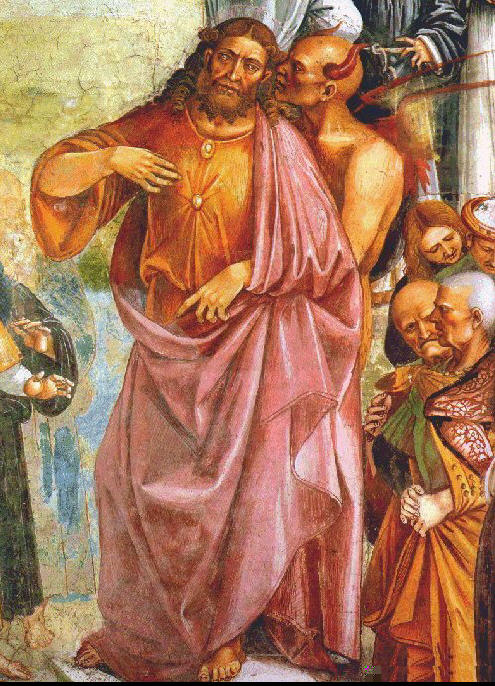 evil.” – Fourth Lateran Council
evil.” – Fourth Lateran Council
In many religions and myths, the devil is believed to be a supernatural entity that is the personification of evil and the enemy of God and humankind. The devil is called the slanderer or accuser of their faiths. Both God and the Devil are usually portrayed as fighting over human souls, where the Devil rules hell with his Legion of demons who punish the damned. In the Old Testament (Hebrew Bible), the devil is described as the Adversary (ha-satan), and an angel who instigates tests upon humankind. In the Gospel of Mark, 5:9, it describes the encounter of Jesus with Legion; “And He (Jesus) asked him (the man), “What is thy name?” And he answered, saying, “My name is Legion: for we are many.”
The Devil and the Beast of Revelation is called “the Great Dragon, serpent or viper.” Serpent (Greek: ὄφις; Trans: Ophis, /o’-fēs/; “snake”, “serpent”) occurs in the Book of Revelation as the “ancient serpent” or “old serpent” used to describe “the dragon”; Satan the Adversary, who is the Devil. In the Book of Revelation 12:9, 20:2 have also been identified with Satan, as have “the prince of this world.” This serpent is depicted as a red seven-headed dragon having ten horns, each housed with a diadem. The serpent battles Michael the Archangel in a War in Heaven, which results in this devil being cast out to the earth. While on earth, he pursues the Woman of the Apocalypse. Unable to obtain her, he wages war with the rest of her seed (Revelation 12:1-18). He who has the key to the abyss and a great chain over his hand, binds the serpent for a thousand years. The serpent is then cast into the abyss and sealed within until he is released (Revelation 20:1-3).
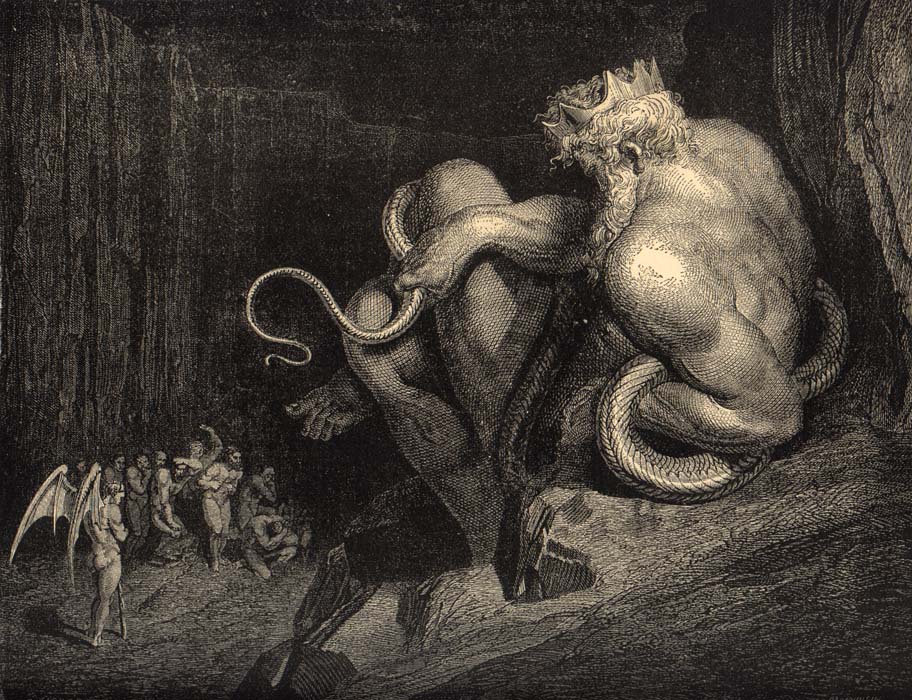 Serpent figuratively describes biblical places such as Egypt (Jer 46:22), and the city of Dan (Gen 49:17). The prophet Jeremiah also compares the King of Babylon to a serpent (Jer 51:34). In the Book of John 12:31, 14:30; “the prince of the power of the air” also called Meririm, and “the spirit that now worketh in the children of disobedience” in the Book of Ephesians 2:2; and “the god of this world (2 Corinthians 4:4)”. In the Book of Isaiah where a reference is made to a serpent-like Leviathan (Isaiah 27:1), and in the Book of Amos where a serpent resides at the bottom of the sea (Amos 9:3).
Serpent figuratively describes biblical places such as Egypt (Jer 46:22), and the city of Dan (Gen 49:17). The prophet Jeremiah also compares the King of Babylon to a serpent (Jer 51:34). In the Book of John 12:31, 14:30; “the prince of the power of the air” also called Meririm, and “the spirit that now worketh in the children of disobedience” in the Book of Ephesians 2:2; and “the god of this world (2 Corinthians 4:4)”. In the Book of Isaiah where a reference is made to a serpent-like Leviathan (Isaiah 27:1), and in the Book of Amos where a serpent resides at the bottom of the sea (Amos 9:3).
THE CHURCH AND THE DEVIL
The Church had set forth its decrees of the Fourth Lateran Council (cap. i, “Firmiter credimus”), where they had written that God in the beginning had created together two creatures, the spiritual and the corporeal, that is to say the angelic and the earthly, and lastly man, who was made of both spirit and body, the council continues: “Diabolus enim et alii dæmones a Deo quidem naturâ creati sunt boni, sed ipsi per se facti sunt mali.” “The Devil and the other demons were created by God good in their nature but they by themselves have made themselves evil.”
Before the current Christian bible in the form of the New Testament was translated into Latin and English from its original Greek and Hebrew versions, the original Greek word for demon, ‘δαίμων’ was found all throughout the bible. When the bible was later changed to the Latinized versions, the Greek δαίμων’ became “dæmon” and daimôn.” Some of these changes involved the deletion of the words daimon or demon, and the incorporation of a new devilish entity known in some cultures as ‘diabolo’, and in others, the devil.
THE DEVILISH WORM AND HIS LEGIONS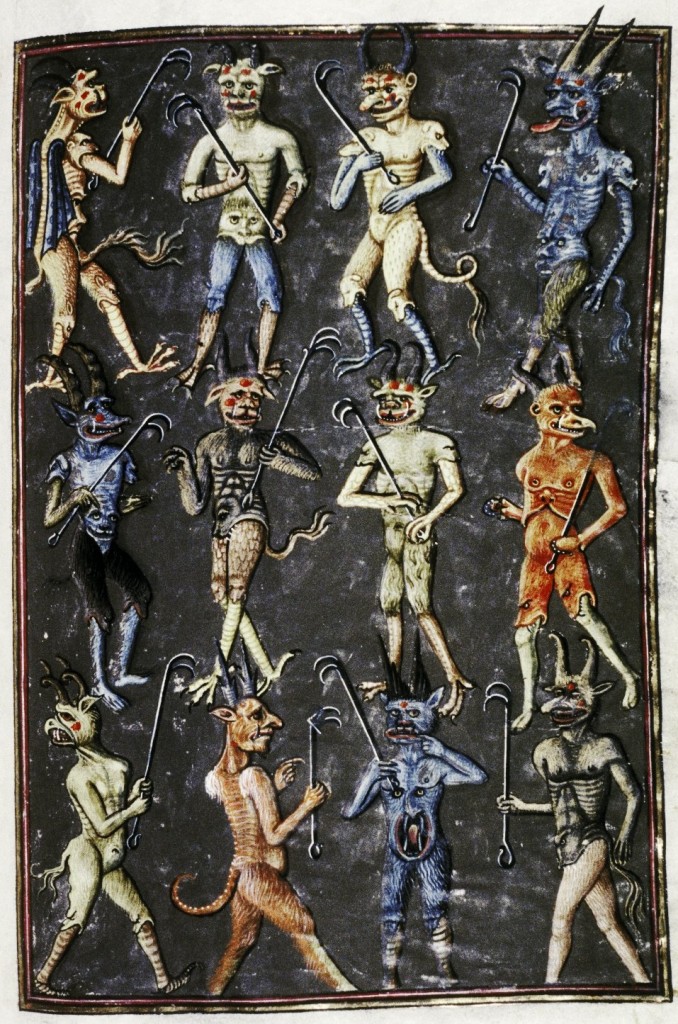
These allegorical references to the serpent, Satan, the great dragon, and the serpent who resides at the bottom of the sea, are exoteric representations for the esoteric truth that is the worm, and the sea or the abyss would represent our blood. This is where the devil resides and his legions of demons swim through our blood, that were created by God good in their nature but they by themselves have made themselves evil. You see, we are all worms, each one of us has the power to become good or bad; and it is through our thoughts, actions and environments that we make this fact a scientific reality.
As it is said in the bible, “And from these worms God made angels.” If the Lord said of Himself: “I am a worm and not a man” (Ps 21:7) We find this passage more correctly rendered in the Hebrew Bible: “Man that is a worm (rimmah), and the son of man which is a maggot” (tole’ah).
In studying the Scriptures, I have also discovered that the “worm” was constantly used for “serpent” by many of the ancient Latin writers. This is verified through etymology as well because the word for dragon in Germanic and Norse mythology and its descendants is worm (Old English: wyrm, Old High German: wurm, Old Norse: ormr), meaning snake. The Lindworm is also known as a “snake” (ormr) or “dragon” (dreki), and in European mythology and folklore, creatures identified as a winged or wingless. The Lindworms were popular motifs on runestones in 11th century Sweden.
In Inferno, Dante calls the Devil “the great worm.” “They shall move out of their holes like worms of the earth,” signifies rather ‘creeping things,’ or ‘ serpents.’ – Micah (vii. 17) In the bible in Acts, xxviii. 4 and 6, you will find the word worm is used for serpent or viper, in the English Testament of the Geneva version. In the common version it is called ” beast,” and ” venomous beast.” In ver. 3, both translations call it a viper.
These devilish revelations about the Great Dragon being a worm is not so far-fetched, because I have discovered that modern science can now back up these biblical claims. Today many scientists who study worms for a living have made some interesting comments recently about their worm research. For example, Dr. Francis Collins, Director of the National Human Genome Research Institute had said, “Of the 5,000 best-known human genes, 75 percent have matches in the worm.” Dr John Sulston, Director, Sanger Centre, UK was quoted saying, “By looking at the genes that are needed to make worm muscles, we can learn quite directly about the genes that make human muscles – because they are the same. In a wonderful way, they are like miniature human beings.”
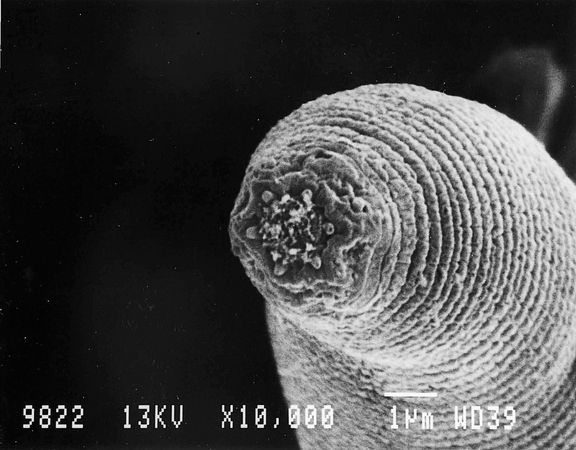 I also recently had written an article called Devil Worm which told the story of a worm like no other animal, that can withstand the highest heat temperatures and crushing pressure inside the earth. In fact, Scientists had interestingly named the worm after a demon named Mephistopheles of the Faustian legend, “Halicephalobus mephisto.” A name meaning, “he who loves not the light.”
I also recently had written an article called Devil Worm which told the story of a worm like no other animal, that can withstand the highest heat temperatures and crushing pressure inside the earth. In fact, Scientists had interestingly named the worm after a demon named Mephistopheles of the Faustian legend, “Halicephalobus mephisto.” A name meaning, “he who loves not the light.”
This ancient devilish science is spoken about by Christian theologian, philosopher, and one of the most important church fathers, Saint Augustine who had educated his fellow brethren about worms, angels and God in the Gospel of Saint John. Augustine had written:
“Therefore these things were not made by the Word; but whatever was made in the natural manner, whatever belongs to the creature, everything that is fixed in the sky, that shines from above, that flies under the heavens, and that moves in universal nature, every creature whatsoever: I will speak more plainly, brethren, that you may understand me; I will say, from an angel even to a worm. What more excellent than an angel among created things? what lower than a worm? He who made the angel made the worm also; but the angel is fit for heaven, the worm for earth. He who created, also arranged.
If He had placed the worm in heaven, thou mightest have found fault; if He had willed that angels should spring from decaying flesh, thou mightest have found fault: and yet God almost does this, and He is not to be found fault with. For all men born of flesh, what are they but worms? and of these worms God makes angels.
For if the Lord Himself says, “But I am a worm and no man,” ‘ who will hesitate to say what is written also in Job, “How much more is man rottenness, and the son of man a worm ? “3 First he said, ” Man is rottenness;” and afterwards, “The son of man a worm:” because a worm springs from rottenness, therefore “man is rottenness,” and “the son of man a worm.” Behold what for thy sake He was willing to become, who “in the beginning was the Word, and the Word was with God, and the Word was God!” Why did He for thy sake become this? That thou mightest suck, who wert not able to chew. Wholly in this sense, then, brethren, understand “All things were made by Him, and without Him was nothing made.”
The Greek Poet, Homer had called his gods daimones (demons), and the great philosopher, Plato had said, “all those who die valiantly in war, become demons, and we ought for ever to worship and adore their sepulchres.” 33rd degree Freemason, Manly P Hall; Magic had written in Treatise on Esoteric Ethics, “The devil, the archetype of misuse, is not a son of Saturn, but a son of man and the false darkness of earth. Man is the incarnation of the germ of mental intelligence, and black magic is possible only to intelligent beings.” HP Blavatsky had said, “The Great Dragon was cast out, that Archaic Ophis, called Diabolos and Satan, that deceiveth the whole world.”
To understand who the devil or diabolos might be, we first need to comprehend what the original word that was used before the advent of the words devil or diabolos were used. My research has led me to an ancient Greek word, ‘Daimon’ that was the word that was originally found in the bible before the newer translations changed the word to devil or diabolos. The English word demon is derived from the Latinized versions, “dæmon” and “daimôn” of the original Greek “δαίμων.”
According to Plato, in his Cratylus, the etymology of daimôn/daēmones (δαίμονες: deity/daêmôn δαήμονες) is from tfanuwv, knowing, wise or intelligent. The Greek poet, Hesiod had written that the people of the Golden Age were transformed into demons by the will of Zeus (Jupiter), to benevolently serve mortals as their guardian spirits; “good beings who dispense riches…[nevertheless], they remain invisible, known only by their acts.”
The Greeks never used the word daimon to describe an evil spirit or being. The word demon to the ancient Greeks was used in their language to describe their own departed family or race spirits that could be either good or bad. According to Plutarch, “that according to a divine nature and justice, the souls of virtuous men are advanced to the rank of daemons; and that from demons, if they are properly purified, they are exalted into gods, not by any political institution, but according to right reason.”
This is also explained by 33rd Degree Freemason and Master Rosicrucian, Manly P. Hall who had written on demons and angels in his book, “The Secret Teachings of All Ages;”
The Christian Church gathered all the elemental entities together under the title of demon. This is a misnomer with far-reaching consequences, for to the average mind the word demon means an evil thing, and the Nature spirits are essentially no more malevolent than are the minerals, plants, and animals. Many of the early Church Fathers asserted that they had met and debated with the elementals.
The key to understanding why the early Church Fathers asserted that they had met and debated with the elementals, is that they were actually of Greek decent who were commissioned by the Caesars and Rome to write a new bible called the New Testament (New Law). Hence, these early Church Fathers and Saints were related to the older Ancient Greek Gods, Goddesses and Daimons, in which they had incorporated much of these teachings from the Old Testament into the New Testament.
THE MEANING OF DEVIL
The English word devil is derived from the Middle English devel, and from Old English dēofol, that in turn represents the ancient Greek διάβολος or diábolos. The name diabolos, is a compound word with the combination of three words, dia, bo and los. The meaning of the Greek preposition dia, which has many meanings, including “through, throughout, thoroughly, completely, across, and opposed to.” With the genitive this meaning may be considered under two relations : I. Of space and time ; II. Of cause and means. In Greek mythology, Dia (Greek: Δία or Δῖα), means “heavenly”, “divine” or “she who belongs to Zeus.”
We can find in the etymology of the name Diabolos, a compound word that comprises of dia, and bolos which tells us the true meaning of the word. The name ‘Dia,’ is another name for the Greek God Zeus who is an allegorical SO BELOW representation of the AS ABOVE planet known as the king of planets, Jupiter. The word bolos or bolis, is a great fiery ball, swiftly hurried through the air, and generally drawing a tail after it.
In the Testament of Solomon, Beelzebul (not Beelzebub) appears as prince of the demons who had said he was formerly the highest ranking angel in Heaven. The story further relates how King Solomon had gained control of the demons with the help of a ring with the seal of God (in the shape of a Pentalpha) and magic. What this story tells us, is that Solomon had taken control of their powers and energy through magic and religion in which he had binded them in order to build the Temple of Solomon.
Beelzebub is first found in 2 Kings 1:2-3, 6, 16. The name is derived from Baal or Beel, which the meaning in both Gaelic and Phoenician is the, “Lord of Heaven.” In Christian demonology and the Catholic religion, he is called the devil, and is one of the seven princes of Hell. The various spellings are: Baalzebub, Beelzebul,Beelzeboul, Beelzebub, Beelsebab, Baalzebub and in Hebrew (בַּעַל זְבוּב, Baʿal Zəvûv; Arabic: بعل الذباب, Ba‘al adh-Dhubāb; literally “Lord of the Flies” ; Greek: Βεελζεβούλ, Velzevoúl; Latin:Beelzebūb), with numerous archaic variants. He is a Semitic deity that was worshiped in the Philistine city of Ekron.
In Matt. x. 25, Christ speaks of men calling the master of the house, i.e. Himself, Beelzebul. This had occurred after a father had brought his son to Jesus telling him that he was possessed with a devil, blind, and dumb. Jesus had the man’s son. In Mark iii. 22-27,* the scribes explain that Jesus is possessed by Beelzebul and is thus enabled to cast out devils. Hence, “One possessed with a devil.” The same passage speaks of Beelzebul as Satan, and as the prince of the demons. And all the people were amazed, and said, Is not this the son of David?
And Jesus knew their thoughts, and said unto them, Every kingdom divided against itself is brought to desolation; and every city or house divided against itself shall not stand: 26 And if Satan cast out Satan, he is divided against himself; how shall then his kingdom stand? You believe that Satan has possessed those whom I have cured, and that he has helped me to cure them. If so, then he has helped me to undo what he had done—that is, to oppose and discomfit himself. At this rate, how can there be any stability to his kingdom? It must fall; and Satan must have less than human prudence.27 And if I by Beelzebub cast out devils, by whom do your children cast them out? therefore they shall be your judges.
GNOSTIC WARRIOR CONCLUSION:
The devil was recently addressed this past October, 2013 by Pope Francis who had said this; “The presence of the devil is on the first page of the Bible, and the Bible ends as well with the presence of the devil, with the victory of God over the devil. Do not confuse the truth. Jesus fights the devil: first criterion. Second criterion: he who is not with Jesus, is against Jesus. There are no attitudes in the middle. Third criterion: vigilance over our hearts because the devil is astute. He is never cast out forever. It will only be so on the last day.
The Pope as Vicar of Christ who holds the keys of St. Peter has the power of Solomon over the demons in the form of Binding and Loosing. The Catholic Church has the power of tying or untying a thing by the spell of their divine authority, just as they could, by the power vested in them, pronounce and revoke an anathema upon a person. The meaning of the word Anathema was originally used as a term for exile from the church, but evolved to mean “set apart, banished, denounced”.
The Pope and Church have the power and divine authority to bind or loose the devil and his legions of demons whom they have chained in hell by binding them there since the beginning of this 6th Age. As the Pope said, it all ends with the Devil coming back and to so, they must loose him and his legions in order to fulfill the prophecy of the Apocalypse.
SOURCES:
1. Genius and Spirit of the Hebrew Bible: Including the Biblic Philosophy of …
By Constantine Samuel Rafinesque page 105

Moe is the founder of GnosticWarrior.com. He is a father, husband, author, martial arts black belt, and an expert in Gnosticism, the occult, and esotericism.

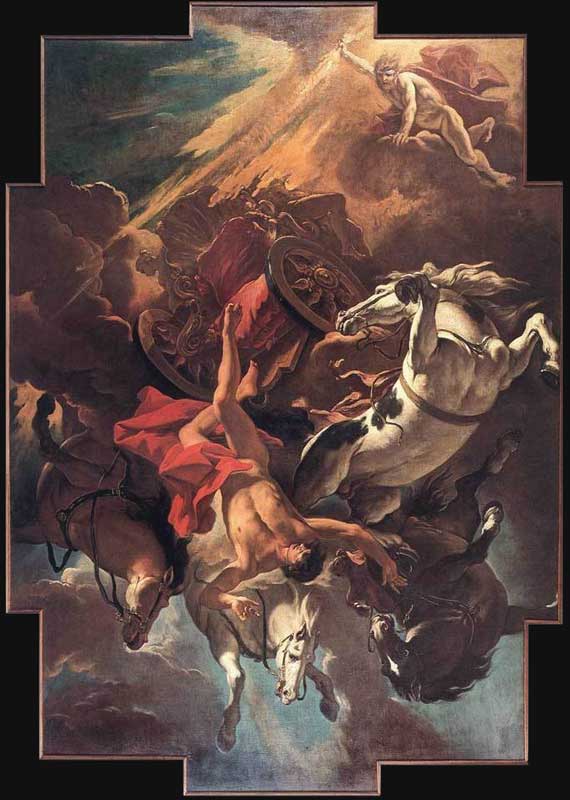
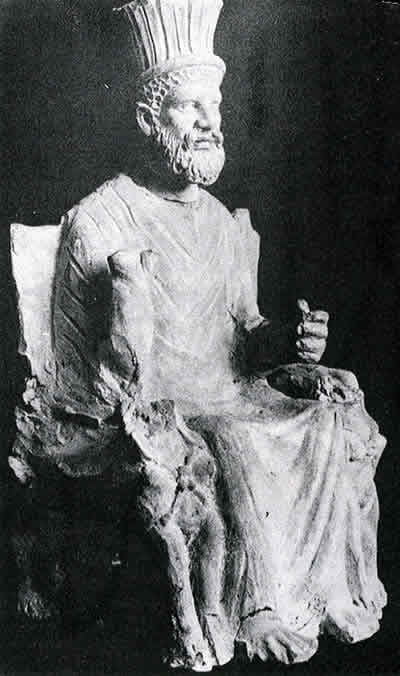

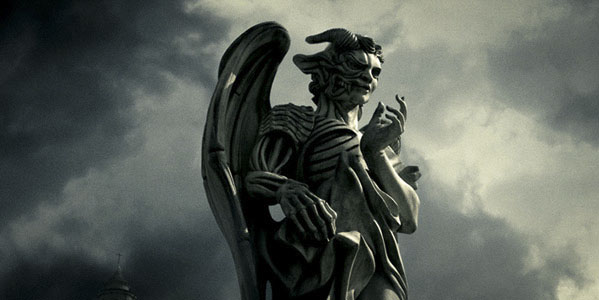


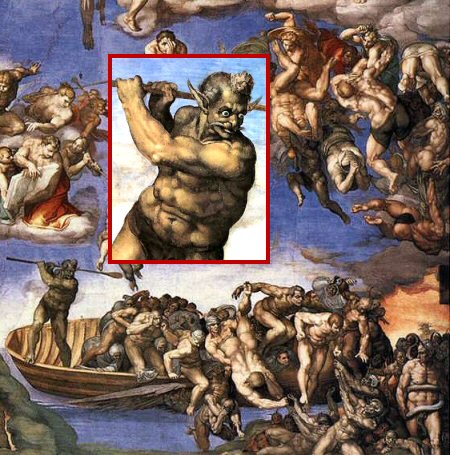

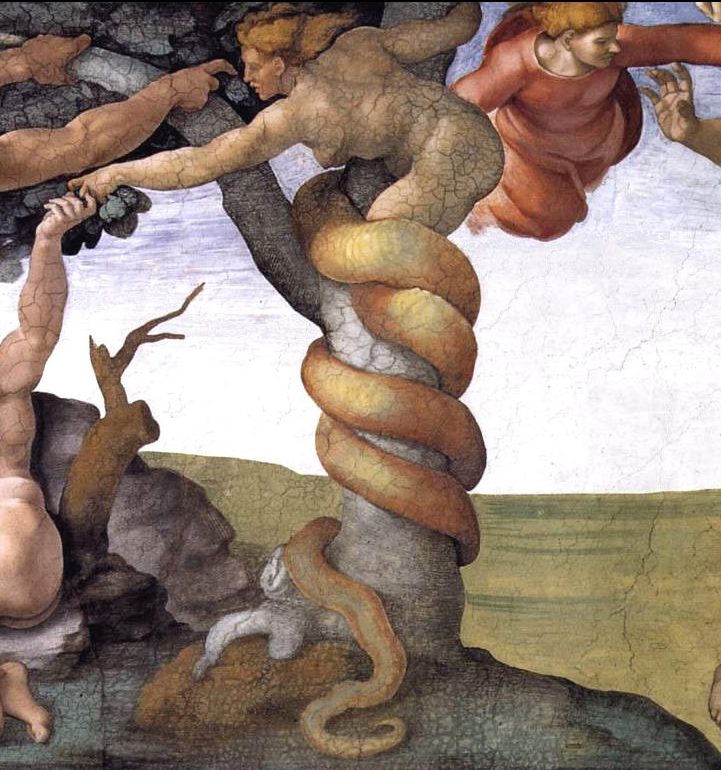
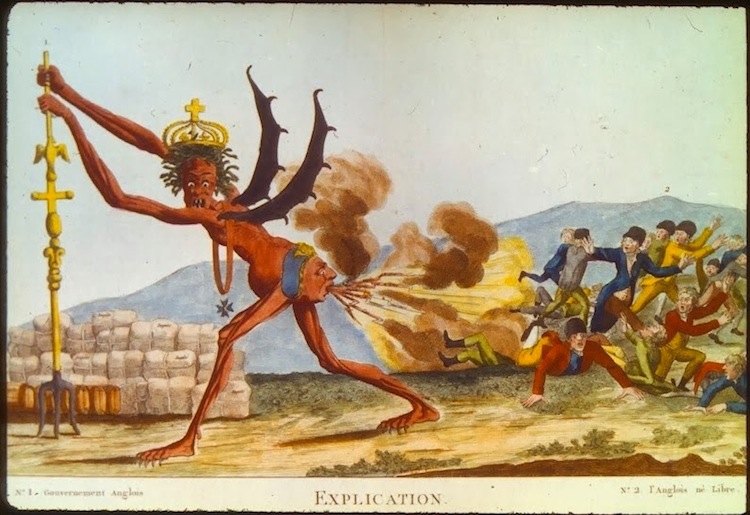
I get that !! I now understand apocalypse .. Thanks Moe ..
https://www.youtube.com/watch?v=BpaRouocBes
OOHhhhgaaaaboooogaaa…. LOL.